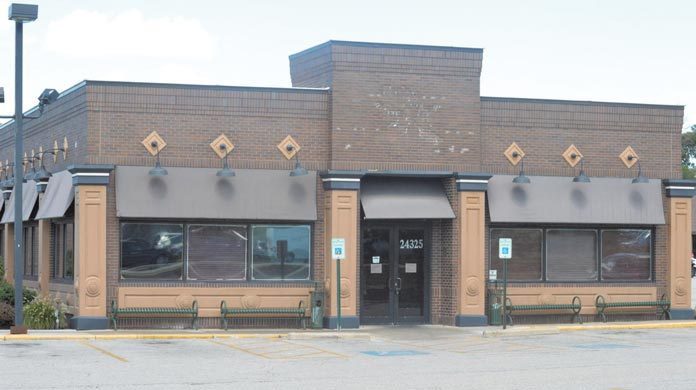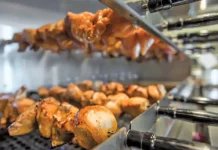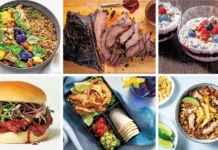
There it was—a headline about one of the early-day casual restaurant chains: “Ruby Tuesday was sold and taken private. As of September 2017, there were 599 Ruby Tuesday restaurants in 41 states, 14 foreign countries, and Guam.” That’s 137 fewer than they had in 2015.
I, for one, was very surprised. In fact, in a column of six months ago where I discussed that a number of chains were downsizing, I suggested that because of their management they would prevail. While they will, it will be under new leadership. Private equity firm NRD Capital Management, which recently invested in other restaurant companies, is buying Ruby Tuesday for $146 million. Mr. Aziz Hashim, founder of NRD, was quoted as follows: “As a private company, we will be able to take a long-term view on Ruby Tuesday,” making investments without public company constraints.
I’m assuming the 137 Ruby Tuesday restaurants that have closed will be sold or leased to new owners. One of the negatives of selling or leasing restaurant space is that, for the most part, it becomes another restaurant simply because it is a single-purpose building. In order to make it something else necessitates removing fixtures and heavy kitchen equipment, and a reconfiguration of the space, as well as finding a buyer. I also assume they are well located.
A few days later I read an article by Jonathan Maze in Nation’s Restaurant News, where Romano’s Macaroni Grill had filed for Chapter 11 bankruptcy protection; 37 units were involved. “Nishant Machado, the company’s acting CEO, blamed the chain’s problems ‘on an overall downturn for the casual dining industry,’ including a preference of customers toward ‘cheaper, faster alternatives.’ He also cited ‘a trend among younger customers to spend their disposable income at non-chain “experience-driven” restaurants.’ ”
In the midst of the closings and downsizing, three of the largest foodservice states suffered—Florida and Texas with floods, and California with devastating forest fires. This brought disruption to people’s lives and caused consumers and businesses to face expensive recovery costs. Unfortunately, some will have no homes to return to in all three states. As reported September 25, 2017, the National Restaurant Association has stated that Florida and Texas are expected to generate about 12% of total restaurant sales this year.
To give an overview of the size of the Florida market, Mr. Maze, in a recent issue of Nation’s Restaurant News, wrote the following: “Florida, with an estimated population of more than 20 million, is also a huge restaurant market. Subway, for instance, has more than 1,500 locations in the state. McDonald’s Corp. and Dunkin’ Donuts each have nearly 900 locations in Florida and Puerto Rico. Starbucks Corp. has 700 locations there.”
And now for some idea of the total destruction in Florida and Texas: Bill Strout, president of Intrepid Direct Insurance, said in an interview with Mr. Maze, of NRN: “… it would take some time before insurers understand the full extent of Irma’s toll. ‘You’re talking 10s of billions and maybe up to $100 billion.’ ”
Boston-based risk modeling firm Air Worldwide lowered estimates of Hurricane Irma to as much as $40 billion—down from an estimate of $65 billion. The storm’s path on the western side of the state likely reduced the expected consequences.
Not all of the industry news is negative. The October 1 issue of Crain’s New York Business carried a story titled, “Food chains flock to the city, undeterred by wage hikes.” This obviously is a twin-edged sword, but the casual quick-service segment is being welcomed with open arms and is seemingly prepared to deal with a highly competitive market.
Taco Bell is increasing its footprint by opening 50 restaurants in the next five years. Chick-fil-A will open its third restaurant in New York City’s Financial District; it will be the chain’s largest in the U.S., at 12,000 square feet over five floors, including rooftop seating and private group-dining space.
Crain’s went on to list “fast-food nation” growth as follows: “Dunkin’ Donuts here has soared by 75% since 2008, to nearly 600. … Popeye’s fried chicken … jumped by nearly 60%, to 90. Even McDonald’s, which has been struggling of late to adapt to changing tastes, has added 30 outlets in the city and now has nearly 250. Many more chains are on the way, as restaurant companies with deep pockets look to expand, lured by a booming economy—a record 4.1 million New Yorkers hold jobs in the city and are presumably looking for something new on their lunch break. … The expansions of Taco Bell and Chick-fil-A come as operating costs rise, fueled by rents and increased wages. The minimum wage for fast-food employees will rise to $13.50 December 31 and will reach $15 by the end of next year [2018].”
I think it would be fair to say that we, the industry, are going through some major changes. It seems that every day a new chain announces its arrival, and at the same time a long-term, established one is either downsizing or leaving the stage. A long-term independent will not be renewing his or her lease after 20 or so years. No sooner have we rearranged our staff to deal with the minimum wage, than, come January we will have to do it all over again. And, now I have noticed that my neighborhood supermarket has expanded its ready-to-eat aisles.
I asked a good friend of mine who has been in the business for 48 years—and within that time developed a small chain—to sum up what he thinks of the present status of the industry. Here is what he said: “Ruby Tuesday, TGIF, Chili’s, Applebee’s, and my restaurants, among others, are facing declining customer counts. Store closures everywhere … they all have closed stores. Obviously, the ‘good’ locations will be reconfigured. High rents, fast-casuals, and declining traffic are having a negative effect on the industry segment we are in. Independents have difficulty competing with chain advertising and purchasing power. I have made it 48 years; not sure if I’ll see 50.”
The word “flux” is defined in Webster’s New World Dictionary as “flowing, continual change.” I would suggest that best describes the status of the foodservice industry today.























